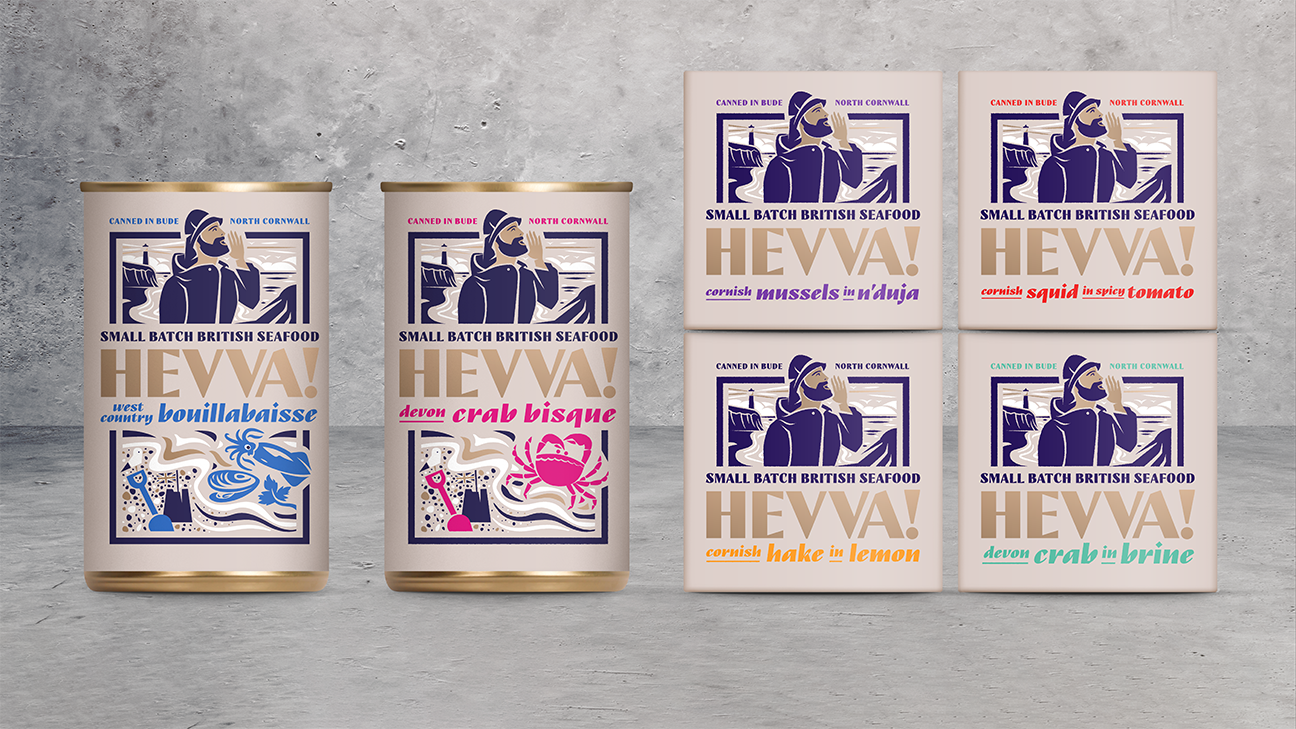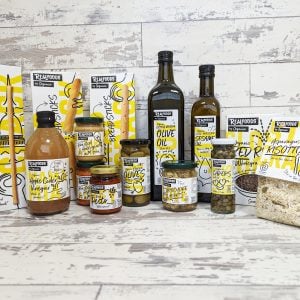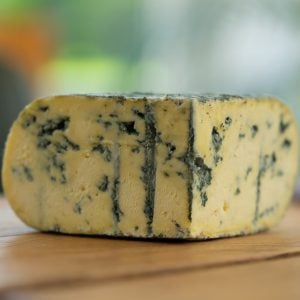
A British canned seafood brand called Hevva! has launched at the Farm Shop & Deli Show.
Making tinned food synonymous with high quality and sustainability is a personal mission of founder Adam Tynan, who is also behind the KEPT vegan meals-in-cans brand.
Named after the Cornish word shouted out to guide fishermen toward shoals of pilchards, Hevva! has an initial range of six products, all made from fish and seafood landed on the West Coast. Mussels cooked with Cornish Charcuterie N’duja, Squid in Spicy Tomato, Hake in Lemon, and Crab in Brine, all come in 90g cans (RRP £4.50-£6.50). Completeing the line-up is a Bouillabaisse and a Crab Bisque, both in 280g portions (RRP £6).
“Six products at launch is more than we envisaged”, Tynan told FFD, “but everyone was super happy with the development work.”
The release follows on from the introduction of KEPT canned food – vegan ready-meals in conserves – which are also made by the cannery at the Norton Barton Artisan Village in Bude.
The North Cornwall Food Enterprise Zone set up by Richard and Fionagh Harding is home to the Popti and Fionagh’s Crackers bakery, the distillery where Bude Gin and Kalkar Rum are made, and the Whalesborough Dairy, as well as being the home of Cornish Charcuterie.
Tynan hopes the Hevva! brand will appeal to the increasing number of people buying Spanish and Portuguese conservas – as well as to people keen to eat sustainably sourced, British seafood.
“The top line for us is that no matter what you’re putting in a can, if you’re putting it in another format, you’d be adding on 60% more carbon just by virtue of the packaging.”
“If you take a sardine and make it last for five years, compared to the amount that gets thrown away in the process of refrigerating it, freezing it, storing it at home, etc., it’s infinitely better to buy it in cans,” he added, not to mention that most of the fish and seafood we eat in the UK comes from abroad.
“Our most sustainable fishing methods are catching things that we’re not generally eating. So if you can champion those, you’re doing another sustainability job again.”
This article first appeared in the May 2024 edition of Fine Food Digest .



